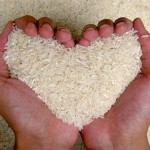Fasting and Its Educational, Social Effects

From the point of various affects that fasting may spiritually and materially produces in the unity of man; it has different dimensions that can be discussed. The ethical dimension and the philosophy of fasting are the most important of all.
Fasting makes the soul of man elegant, then strengthens his will, and moderates his instincts.
The one who observes the fast, although he is hungry and thirsty, must restrain himself from eating food and drinking water, and also, from the pleasure of sexual intercourse when he is fasting. One must prove that he/she can hold the rein of his/her restive passions and is able to dominate his/her desires and lusts.
Indeed, the most important philosophy of fasting is this very spiritual status of it. A person who has many kinds of food and drinks available at his reach to use of them whenever he is hungry or thirsty cannot be so tolerant at the time he is in lack of them.
But the one who observes the fast is like a plant which grows in a dry desert. It resists when water is rare, stands steadfast against strong storms and intense cold. Such people can deal with deprivations when they are challenged with them, and, therefore, can be firm and perseverant.
Fasting trains the soul of a person. With temporary restrictions, fasting gives man perseverance, authority in will, ability of challenging with severe deprivations, and, since it controls restive instincts, it showers light and inner purity into the heart.
However, fasting causes man to promote from the animate nature so that he can ascend unto the rank and the world of angels.
The phrase: “…haply you might be grateful (to Him)” may point to the same fact.
And, also, the famous tradition from Imam al-Sadiq (as) is another hint to the same matter which says: “Fasting is a protector from Fire.” 6
Another tradition narrated from Arnir-ul-Mu’mineen Ali (as) says that the Prophet (S) was asked what they would do that Satan be banished, and he (S) answered: “Fasting blackens his face; charity breaks his back; the love in (the path of) Allah, and persistence in righteous deeds put an end to him, and seeking (Allah’s) forgiveness cuts his aorta.” 7
When Ali ibn Abi Talib (as), stating the philosophy of worship, speaks about fasting and he, says: “(Allah has laid down) fasting as a trial of the people in their sincerity…” 8
In another tradition, the holy Prophet (S) has said: “Verily, there is a door for (entering) Heaven by the name of ‘Al-Rayyan, (quenched of thirst) none enters therein but fasting ones.” 9
Explaining this tradition, the late Sadduq cites in his book ‘Ma’any-ul-Akhbar’ the reason that this name has been taken for that door of Heaven is that much of the toil of a fasting person is because of his thirst. So when the fasting ones enter this door, they will be so saturated that they will never become thirsty thereafter.
The Social Effect of Fasting
Every intelligent person realizes that fasting works as a lesson of equality among the members of a society. By practicing the religious command, the rich realize perceptibly both the state of the hungry and the deprived of their society, and, with saving in their daily meals, can help them well.
It is possible; of course, that by explaining the status of the hungry and the deprived to the rich, it will make them understand that status, but if this condition becomes perceptible and objective, it will react more effectively. Fasting gives this great social subject a perceptible form to those who observe it.
It is narrated from Imam al-Sadiq (as) in a well-known tradition that Hisham ibn Hakam asked him about the reason for the divine legislation of this ordinance when he (as) said:
“Allah has enjoined fasting in order to settle equivalence between the rich and the poor, and this is for the sake that the rich feel the taste of hunger and, consequently, be merciful toward the poor (by giving them their rights). And, since the things are usually available for the rich, then Allah, the Exalted, is pleased when equivalence is erected between His servants. So, He, thereby, has ordained that the rich feel the taste of hunger and pain so that they feel sympathy for the weak and be merciful toward the hungry.” 10
Verily, if the populations of rich countries throughout the world customarily fast a few days a year and feel the taste of hunger, will there still remain so many hungry people in the world?


